Overclocking
Firstly, we should mention that while the Gigabyte X470 Aorus Gaming 7 WiFi simply required us to select the XMP profile in the EFI to apply the correct memory speed and timings, the MSI board only applied the right timings and wasn't intelligent enough to tweak the memory divider to reach 3,000MHz, instead sitting at 2,933MHz. However, this is easily fixed in the EFI, but it's an additional step compared to the Gigabyte board. We thought we'd managed an extra 25MHz on the overclock of our Ryzen 7 2700X too, reaching 4.275GHz as opposed to 4.25GHz with 1.425V, passing Cinebench and a 10-minute torture test with Prime95, but sadly HandBrake froze half way through, so we had to back off. It's likely that with even better cooling and a higher vcore there's plenty of headroom with this board.
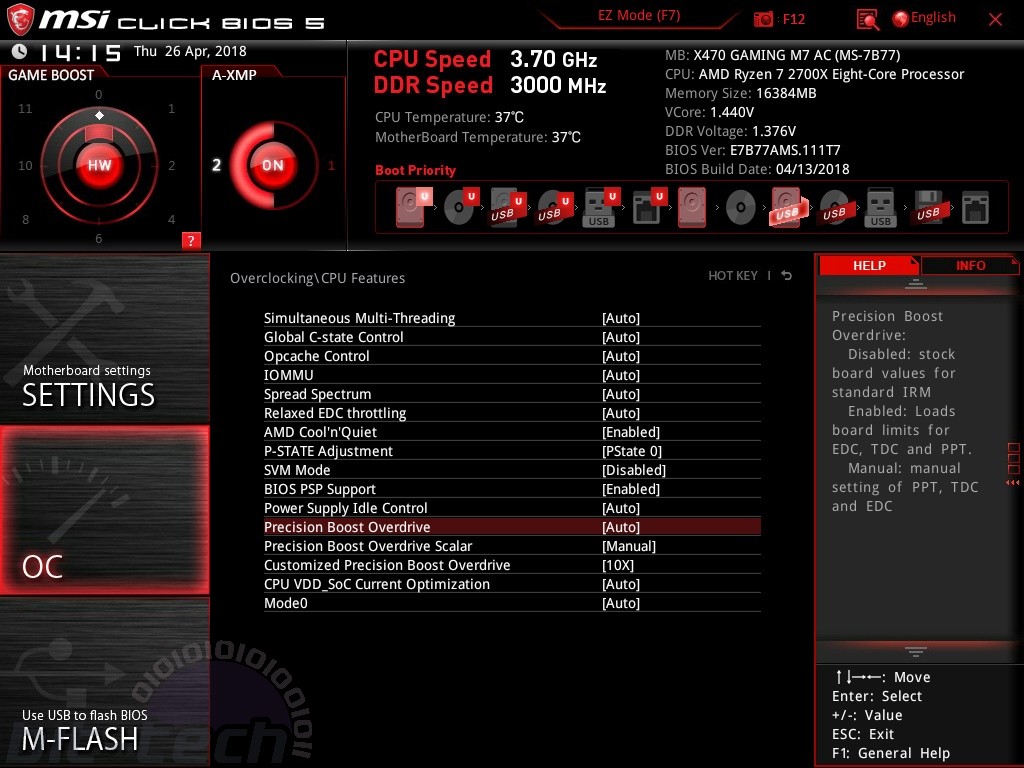
The EFI hasn't changed much compared to X370 boards we've looked at and you can see our full walk-through here. However, as with the Gigabyte X470 Aorus Gaming 7 WiFi, there is one addition in the EFI in the form of Precision Boost Overdrive controls, which provide additional boosting above the maximum frequency that can be obtained through XFR 2. It works in exactly the same way as the Gigabyte board, with a scalar to set the boost frequency.
Performance Analysis
The most significant performance differences came in the power consumption section, with the X470 Gaming M7 AC drawing significantly less power in every area than Gigabyte's X470 Aorus Gaming 7 WiFi. There was a 42W difference under load at stock speed and nearly 20W at idle so it's clear that MSI is offering a better, more optimised power package here.

Apart from a particularly low THD, the audio performance was practically identical for both boards as was the SATA and M.2 performance. Elsewhere, there was negligible difference between the two boards - certainly nothing warranting a choice of one over the other.
Conclusion
It's very much an equal fight between the MSI X470 Gaming M7 AC and Gigabyte X470 Aorus Gaming 7 WiFi. The latter has more fan headers, looks better, has more extensive lighting and dual BIOS, while the MSI board has better M.2 cooling, more power phases, and lower power consumption. However, the fact that the MSI board costs noticeably more means that despite the lower power consumption, we'd find ourselves edging towards the Gigabyte board were we to be spending our own cash. However, the X470 Gaming M7 AC is otherwise a very solid effort with a ton of features and well-tuned power circuitry so still comes highly recommended.


MSI MPG Velox 100R Chassis Review
October 14 2021 | 15:04

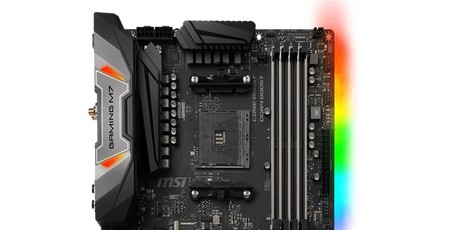
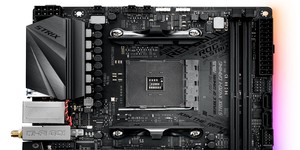
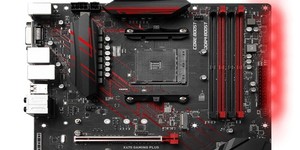
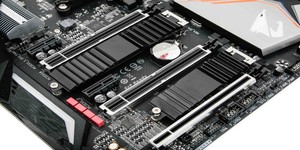




Want to comment? Please log in.